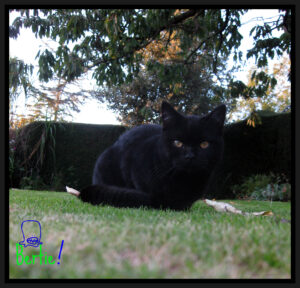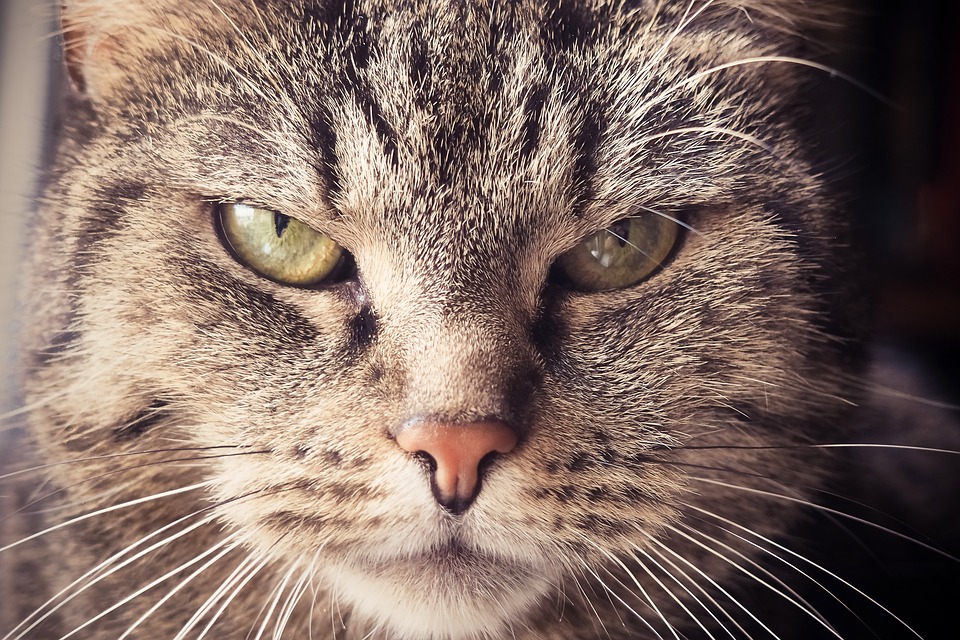Hyperthyroidism is a relatively common disease of older cats.
Symptoms
The symptoms of hyperthyroidism in cats are; weight loss, a good appetite, increased thirst, poor coat condition (matting and increased shedding), changes in behaviour (restless or more grumpy) and some vomiting or diarrhoea. Some cats may have poor appetite.

This disease is sometimes been overlooked because the changes are similar to the cat ‘just getting old’. It is important to realise, however, that by treating this disease you can improve both your cat‘s quality and length of life.
Hyperthyroidism is caused by a (usually) benign tumour of the thyroid gland producing excessive amounts of thyroid hormone. The thyroid glands (there are two) are situated in the throat region and the hormone they produce is important in the regulation of the body’s metabolism. Increased amounts of thyroid hormone increases the metabolic rate of the body so that energy from food is burnt off more quickly, hence weight loss and a good appetitie.
There are other effects from this over production of hormone which are not immediately apparent. The most important of these is over activity of the heart muscle (hypertrophic cardiomyopathy). The heart beats faster but less efficiently causing high blood pressure, damage to the kidneys, production of blood clots (thrombosis) and, ultimately, heart failure.
Old cats can also suffer from many other problems such as kidney failure, arthritis, dental disease etc. It is vital that we examine and test to make sure we address all the problems together.
Diagnosis
This is by blood test when we will test for any other problems as well as give a full examination.

Treatment
Medical. Pills, an oral liquid or a solution that is absorbed through the skin of the ear can be used. They all suppresss the thyroid gland‘s production of thyroid hormone. Medical treatment is relatively inexpensive and avoids the need for surgery. However, some cats are not easy to give medicines to and some cats require multiple blood tests to get the dosage correct.
Surgical. The affected thyroid gland can be removed. The unaffected gland left behind takes over the work so the cat suffers no ill effects. The advantages of this approach is that you do not have to give pills or have blood tests and the results are nearly always good. The disadvantages are that it is an operation and the cost of surgery has to be balanced against the cost of pills.
Chemotherapy. Radioactive Iodine can be given to the cat, this collects in the thyroid gland and destroys the cancerous tissue. It is usually very effective but is only carried out at specialist centres and will involve your pet being hospitalised.
Diet. The thyroid gland is dependant on Iodine in food to function and if it is severely restricted the hyperthyroidism can be cured by dietary change alone!
If you have any questions about hyperthyroidism in your cat, don’t hesitate to contact us by clicking here





